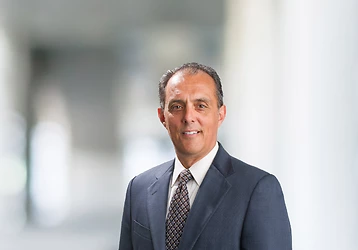A Call for Federal Overreach? Michigan's Attorney General Joins the Growing Misguided Attack on Non-Compete & No-Poach Agreements
On July 15, 2019, Michigan’s Attorney General, Dana Nessel, joined a group of 17 other State Attorneys General from around the country in urging the Federal Trade Commission (FTC) to take a harder line against non-compete and no-poach agreements. Click here. Specifically, these State Attorneys General believe that the FTC should consider using its federal agency powers to interfere with state contractual rights and treat these agreements as potential violations of the Sherman Antitrust Act. They argue that the agreements can harm workers by limiting their employment options and ability to seek higher-paying jobs.
In support of their recommendations, the State Attorneys General highlighted and relied upon the following:
- A strong interest in the competitiveness of the markets, including labor markets.
- A decline in relative income among workers (citing a March 2017 Bureau of Labor Statistics analysis of wages since 1947).
- A series of enforcement actions against franchisors, including (i) a multistate settlement with four national fast food franchisors to stop using “no-poach” agreements (agreements not to hire other franchisees’ employees), and (ii) Washington State Attorney General lawsuit against Jersey Mike’s as per se violations of Washington state antitrust law.
- A recent trend of states adopting and/or considering legislation to outright ban non-competes or at least in certain situations, including:
- Illinois – 2016 law prohibits the use of non-competes for employees who earn $13 an hour or less.
- Massachusetts – 2018 law prohibits the use of non-competes for certain professions and limits the terms for other workers (e.g. duration, scope, garden leave, and wage level).
- Washington – 2020 law prohibits the use of non-competes for employees who make under $100,000 per year.
- Maryland – 2019 law prohibits the use of non-competes for employees making less than $15 per hour or $31,200 annually.
- The recent introduction of bipartisan federal legislation, including the “Workforce Mobility Act of 2018,” proposed by Connecticut Democrat Senator Chris Murphy (which would prohibit employment non-compete agreements for most employees), and the “Freedom to Compete Act,” proposed by Florida Republican Senator Marco Rubio (which would ban the use of non-compete agreements for certain low-wage workers).
- California’s long history of prohibiting non-compete agreements and that it is “still recognized as generating innovative companies and industries.”
The recent efforts to outright ban and/or severely limit the use of non-compete agreements have gained steam in response to certain employers and/or franchisors severely overreaching in their use and enforcement of overly broad non-compete agreements. Indeed, this national debate escalated a few years ago when Jimmy John’s sought to impose overly broad two-year non-compete agreements against its sandwich makers and delivery drivers, as well as when Amazon sought to enforce restrictive agreements on its $18 an hour warehouse workers.
Of course, many argue that the response by certain states, as well as the introduced federal legislation and/or recommended agency action (including this recommendation for greater FTC action), to outright ban non-compete and no-poach agreements has resulted in unnecessary overreach. Critics of such agreements often point to California, particularly Silicon Valley, as an example of the economic development that is not only possible, but that flourishes when employees are free from the shackles of non-compete agreements. As noted above, these 18 State Attorneys General argued that California is “still recognized as generating innovative companies and industries.” The author of this client alert has repeatedly pointed out the flaws of the “Be Like California” argument. resources-publications-Proposed-Legislation-to-Ban-Non-Competes-Could-Have-a-Chilling-Effect-on-Innovation-and-Economic-Growth.html. In fact, California was ranked dead last yet again on the 2019 Best & Worst States for Business by Chief Executive Magazine. https://chiefexecutive.net/2019-best-worst-for-states-business/. This argument also ignores the success of cities in states where non-compete agreements are permissible and enforceable, including Detroit (historical success of the auto industry), Boston (historical success of the pharmaceutical industry before the new Massachusetts law), and Austin (wildly successful population and employment growth).
In light of the increased scrutiny on non-compete and no-poach agreements, what should employers and/or franchisors do? Here are some recommendations:
- Immediately review your existing non-compete and/or no-poach agreements and analyze whether they comply with new state laws and/or could withhold scrutiny from state and federal agencies.
- Tailor your non-compete and/or no-poach agreements for the jurisdiction in which they are used. For example, a reasonable non-compete agreement that would enforceable in Michigan would likely not be enforceable if the employee lives and works in California.
- Audit your non-compete and no-poach agreements on at least a yearly basis to ensure that they are compliant with any changes to state and/or federal laws. As noted above, the laws are constantly evolving and/or changing.
- As to franchisors, you will likely need to update your franchise agreements with existing franchisees (and prospective franchisees) and franchise disclosure documents to comply with no-poach changes in certain states (e.g. Washington).
In the end, the message should be loud and clear. Proactively take steps to ensure that your restrictive covenant agreements will likely be held enforceable by carefully crafting to protect your legitimate business interest and narrowly tailoring the restrictions.
Please contact the authors of this alert or any of Butzel Long’s Trade Secret and Non-Compete Specialty Team attorneys regarding the latest changes in the law and/or to help implement the recommended steps above.
Bernard J. Fuhs
313.225.7044
fuhs@butzel.com
Phillip C. Korovesis
313.983.7458
korovesis@butzel.com
Paul M. Mersino
313.225.7015
mersino@butzel.com












